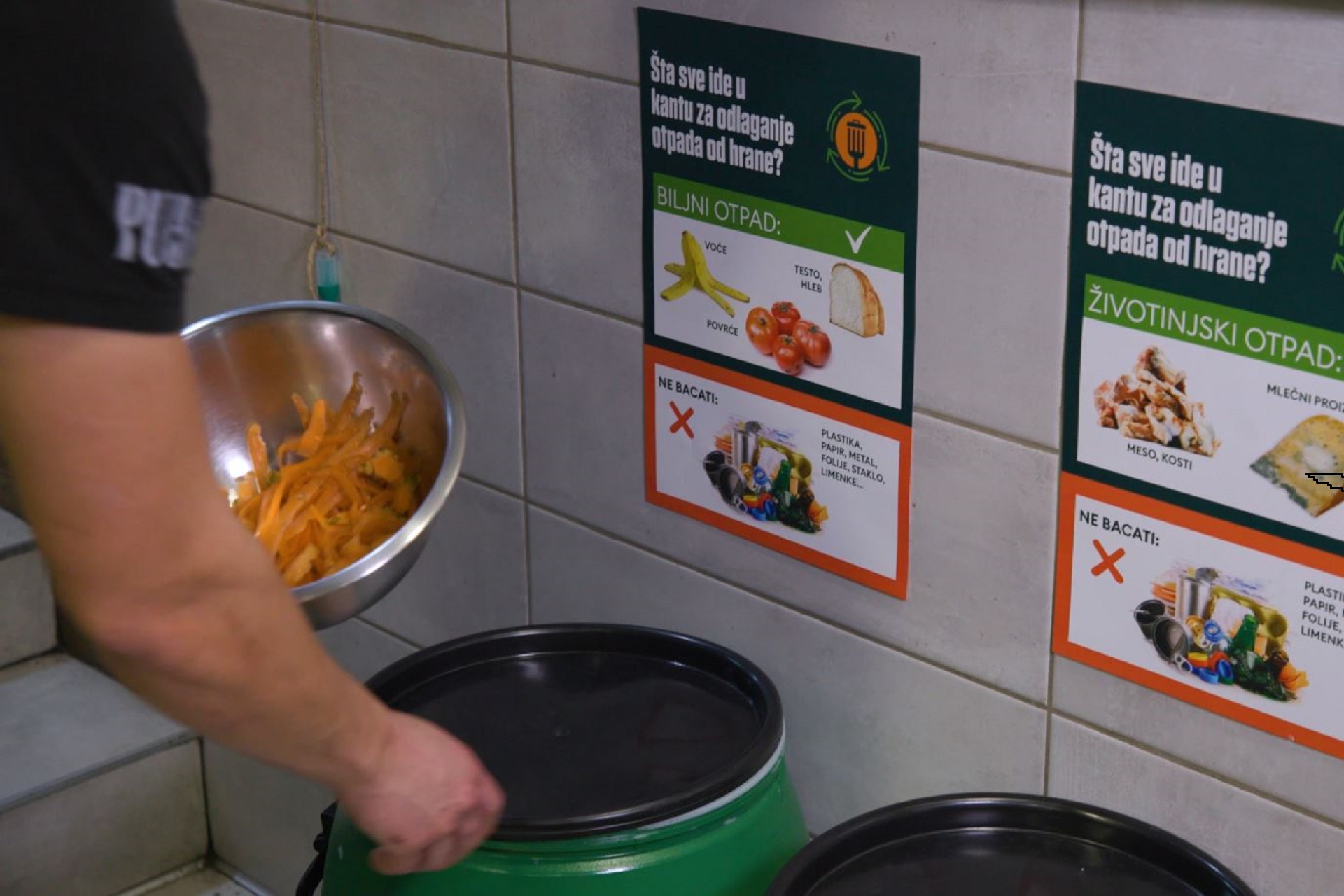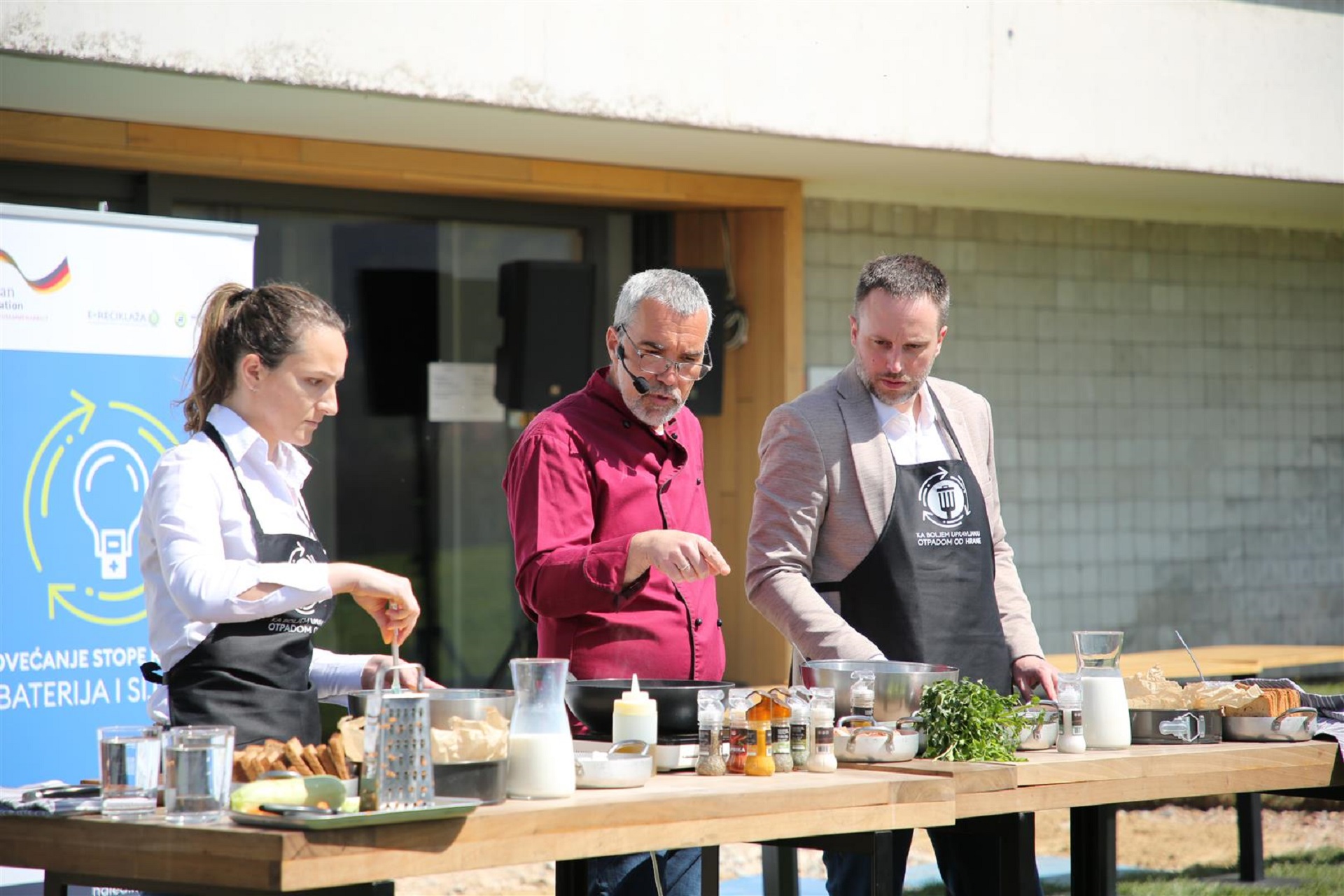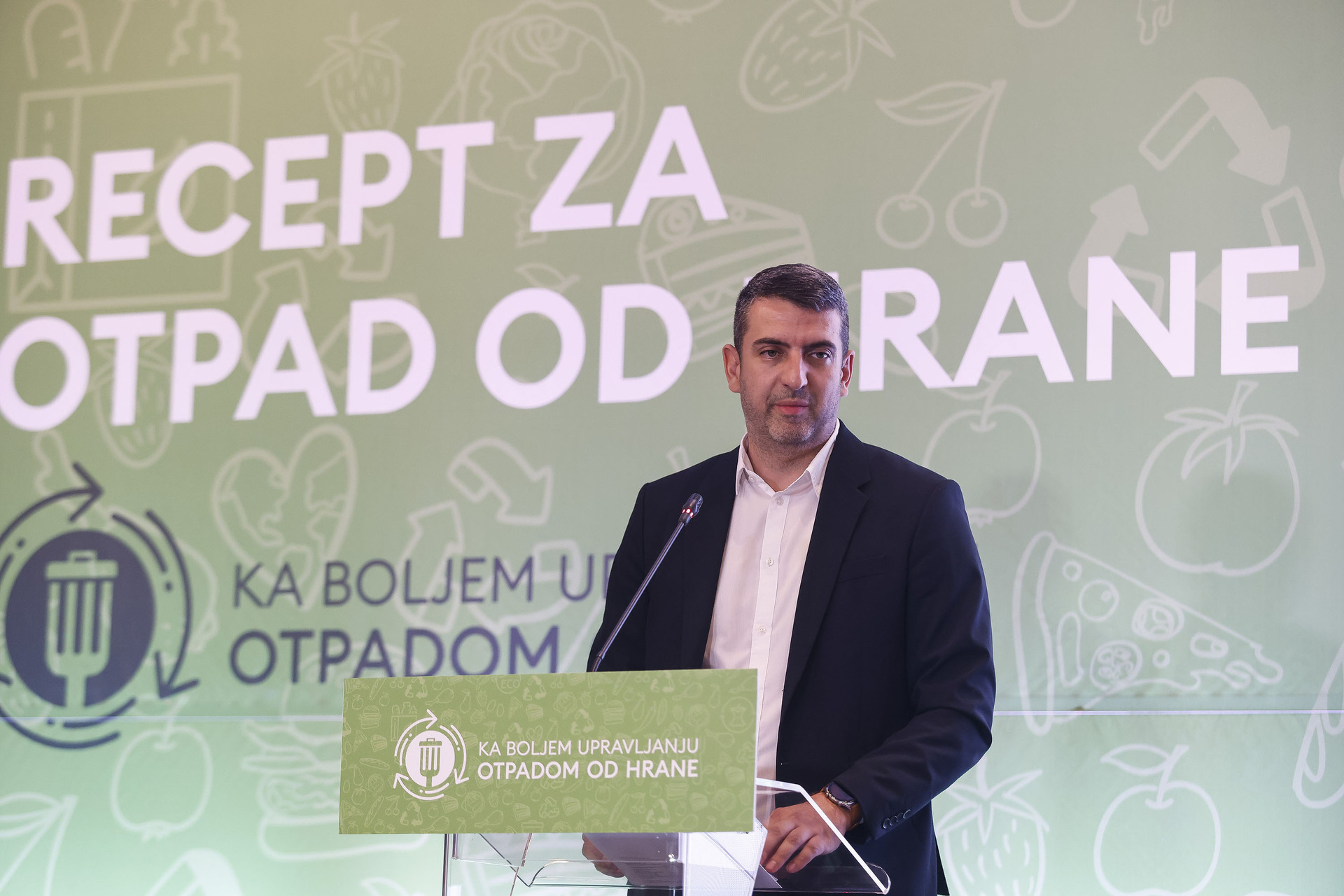[TV N1] More than 240,000 tons of food are thrown away every year in Serbia
In Serbia 240,000 tons of food are thrown away every year, or 30-40 kg per capita. It is likely that this number is higher, according to estimates. In contrast to developed countries, food residues, in 99% of cases, are not separated from other waste.
Slobodan Krstović, Director for Sustainable Development at NALED, as a guest on the InfoBiz show on TV N1, pointed out that the main idea of the project was to shed light on the problem of food waste management in Serbia, given that 99% of this type of waste ends up at a communal landfill.
- For these three years, we have done a lot, we have prepared a Guide for proper food waste management for restaurants and catering facilities, a draft rulebook for all those who produce and put over 50 meals a day, on how they should sort that waste, all to get some new value and to use this waste as a raw material, Krstović explained.
According to the report of the Environmental Protection Agency, in the previous year, 2.95 million tons of municipal waste was generated, 40% of the waste being biowaste, with the largest being food waste. As he explained, with proper waste management, prevention and further treatment, we can use it to produce natural fertilizers, composting, biogas, as well as electricity, which is especially important in this period of energy crisis.
According to him, in many developed countries, food waste is used to produce biogas.
- There are not enough biogas plants that use this type of waste, so the potential remains untapped, given the fact that 99% of this waste ends up in landfills. Over a third of the food produced annually worldwide is never consumed. In Serbia, the data are devastating, over 240,000 tons of edible food is thrown away, instead of being given to those who need it the most. That is something we are also working on - prevention and passing a law that would define mandatory donation. So, all the food that expires needs to be donated to those who need it the most within a certain period. This is done through food banks, and other institutions, but it is currently insufficient and is not legally regulated, Krstović explained.
He added that a lot has been done in terms of education on the proper purchase of groceries, and when it comes to legislation, the adoption of the Law on Donations has been proposed.
- It is necessary to enable all large markets to donate food, and to receive certain tax relief for that, such as EU countries, so that food ends up where it is most needed. After that, if we still have food that ends up as waste, we can use it for animal nutrition in accordance with the Law on Veterinary Medicine, and use the leftovers for biogas production, ie. energy, Krstović pointed out.
You can watch the entire video below.



